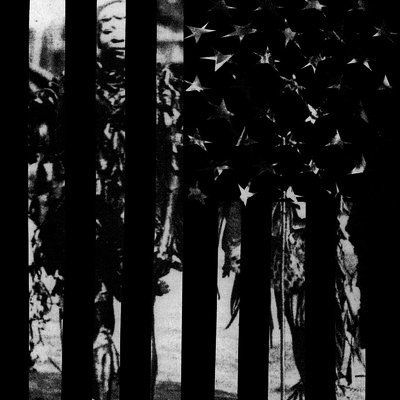Lincoln’s Great Depression
How Abraham Lincoln’s lifelong struggle with clinical depression was a key to his presidency.
How Abraham Lincoln’s lifelong struggle with clinical depression was a key to his presidency.
Joshua Wolf Shenk The Atlantic Oct 2005 40min Permalink

Our founding ideals of liberty and equality were false when they were written. For generations, black Americans have fought to make them true.
Nikole Hannah-Jones New York Times Magazine Aug 2019 30min Permalink
On Kara Walker.
Zadie Smith The New York Review of Books Feb 2020 25min Permalink
On the “white gold” that fueled slavery.
Khalil Gibran Muhammad New York Times Magazine Aug 2019 30min Permalink
A decrepit building and a shameful family legacy.
Emma Sloley Barren Magazine Oct 2018 20min Permalink
A weekend with the United Order of Tents, a semi-covert organization of black women.
Kaitlyn Greenidge Lenny Oct 2017 15min Permalink

“She lived with us for 56 years. She raised me and my siblings without pay. I was 11, a typical American kid, before I realized who she was.”
Alex Tizon The Atlantic May 2017 40min Permalink
A Marxist archaeologist uncovers traces of fugitive slave settlements deep in the Great Dismal Swamp.
Richard Grant Smithsonian Sep 2016 15min Permalink
Two summers spent teaching and living in the hills of Tennessee.
W.E.B. Du Bois The Atlantic Jan 1899 15min Permalink
The story of Ota Benga, captured in the Congo, displayed at the World’s Fair, and brought to the Bronx Zoo in 1906.
Pamela Newkirk The Guardian Jun 2015 25min Permalink
For generations, plantation owners strove to keep black laborers on the farm and competing businesses out of town. Today, the towns faring best are the ones whose white residents stayed to reckon with their own history.
Alan Huffman The Atlantic Jan 2015 20min Permalink
A holiday tradition in the Netherlands involving blackface has sparked a debate about race, the legacy of slavery, and the vestiges of colonialism.
Emily Raboteau VQR Dec 2014 25min Permalink
A ship captain's stories and unsettling encounters.
"Captain Brewster eyed the schooner, heavy in the water but no room in it for two hundred head of anything, and then he realized what it was. He explained to the man that the war was over and Lincoln’s Proclamation had become a Constitutional Amendment, that slavery was outlawed and slaverunners would hang for pirates. The man’s small eyes grew smaller, his heel tapped faster against the wood. He asked if Captain Brewster might like to buy some slaves for himself, though he used a different word, but Captain Brewster assured him that he wouldn’t, advised him to free his passengers and flee. The man spat the word back at him, passengers, half a question and half an accusation."
Samuel Snoek-Brown WhiskeyPaper Sep 2014 Permalink
In 1981, Mauritania became the last country on Earth to abolish slavery. The law had little effect; at least 140,000 people are still enslaved today. Their best hope for freedom is an abolitoinist named Biram Dah Abeid.
Alexis Okeowo New Yorker Sep 2014 25min Permalink
“We are invited to listen, but never to truly join the narrative, for to speak as the slave would, to say that we are as happy for the Civil War as most Americans are for the Revolutionary War, is to rupture the narrative.”
Ta-Nehisi Coates The Atlantic Nov 2011 15min Permalink
On director Steve McQueen and his film 12 Years a Slave.
Dan P. Lee New York Dec 2013 20min Permalink
Frederick Douglass and the specter of slavery in Talbot County, Maryland.
A middle-class father, seeking to impress his daughter, purchases an unusual status symbol.
"After dinner, strolled grounds with Emmett, who is surgeon, does something two days a week with brain inserts, small electronic devices? Or possibly biotronic? They are very small. Hundreds can fit on head of pin? Or dime? Did not totally follow. He asked about my work, I told. He said, Well, huh, amazing the strange, arcane things our culture requires some of us to do, degrading things, things that offer no tangible benefit to anyone, how do they expect people to continue to even hold their heads up?"
George Saunders The New Yorker Oct 2012 35min Permalink
An investigation into slavery in Mauritania:
An estimated 10% to 20% of Mauritania’s 3.4 million people are enslaved — in “real slavery,” according to the United Nations’ special rapporteur on contemporary forms of slavery, Gulnara Shahinian. If that’s not unbelievable enough, consider that Mauritania was the last country in the world to abolish slavery. That happened in 1981, nearly 120 years after Abraham Lincoln issued the Emancipation Proclamation in the United States. It wasn’t until five years ago, in 2007, that Mauritania passed a law that criminalized the act of owning another person. So far, only one case has been successfully prosecuted.
Edythe McNamee, John D. Sutter CNN Mar 2012 30min Permalink
Like hundreds of other local slaves — [they] had been pressed into service by the Confederates, compelled to build an artillery emplacement amid the dunes across the harbor. They labored beneath the banner of the 115th Virginia Militia, a blue flag bearing a motto in golden letters: “Give me liberty or give me death.”
Adam Goodheart New York Times Magazine Mar 2011 20min Permalink